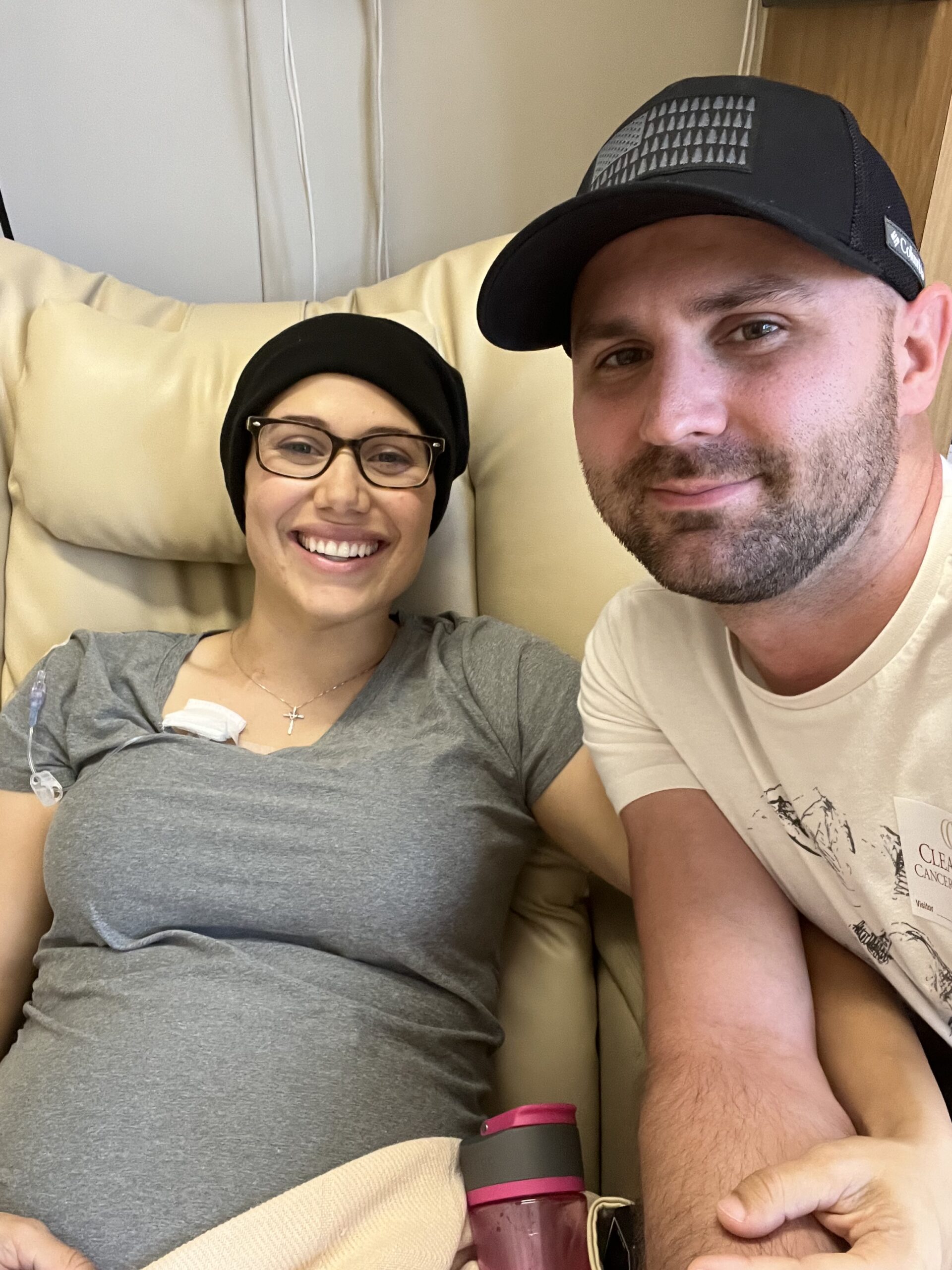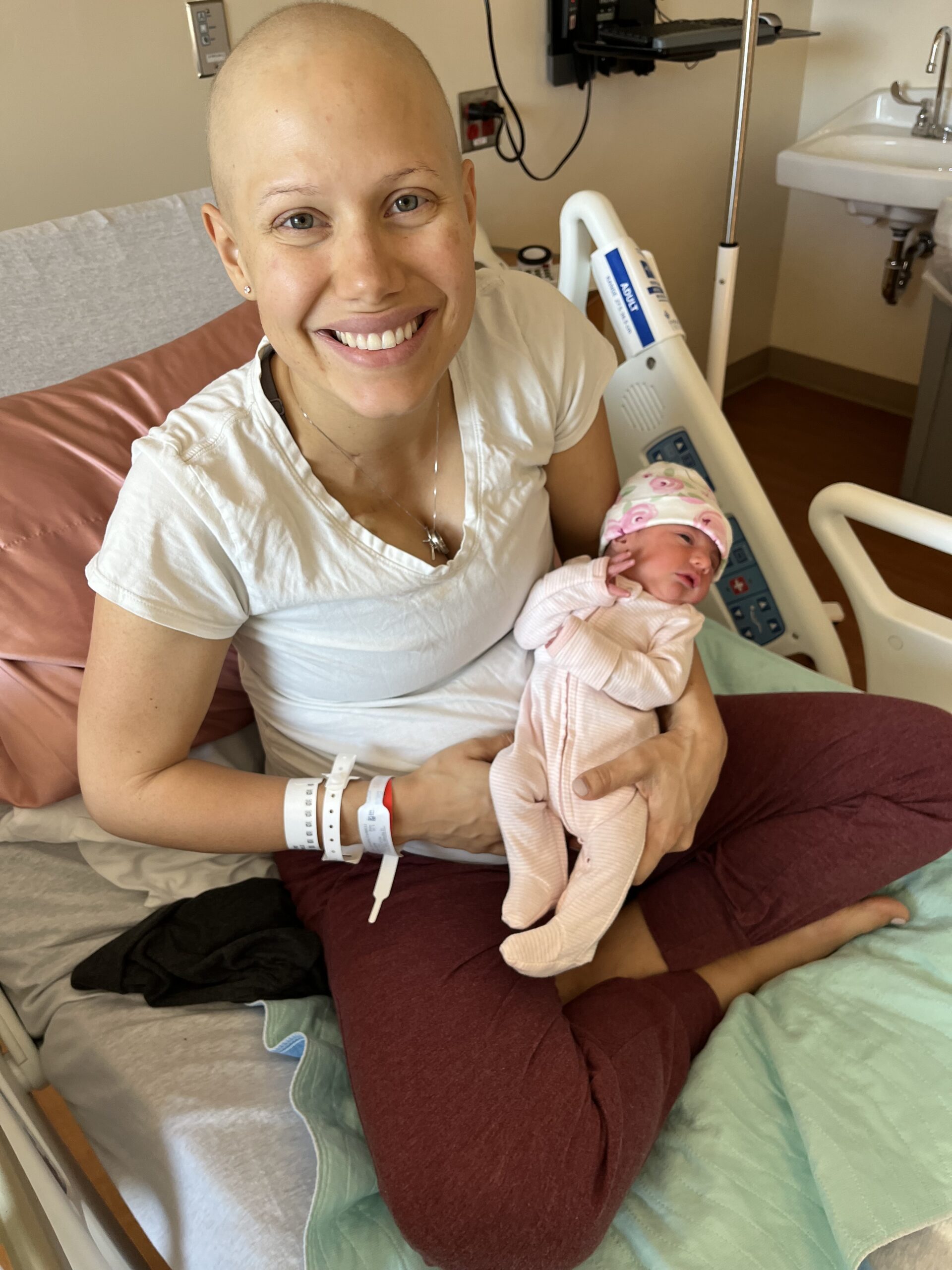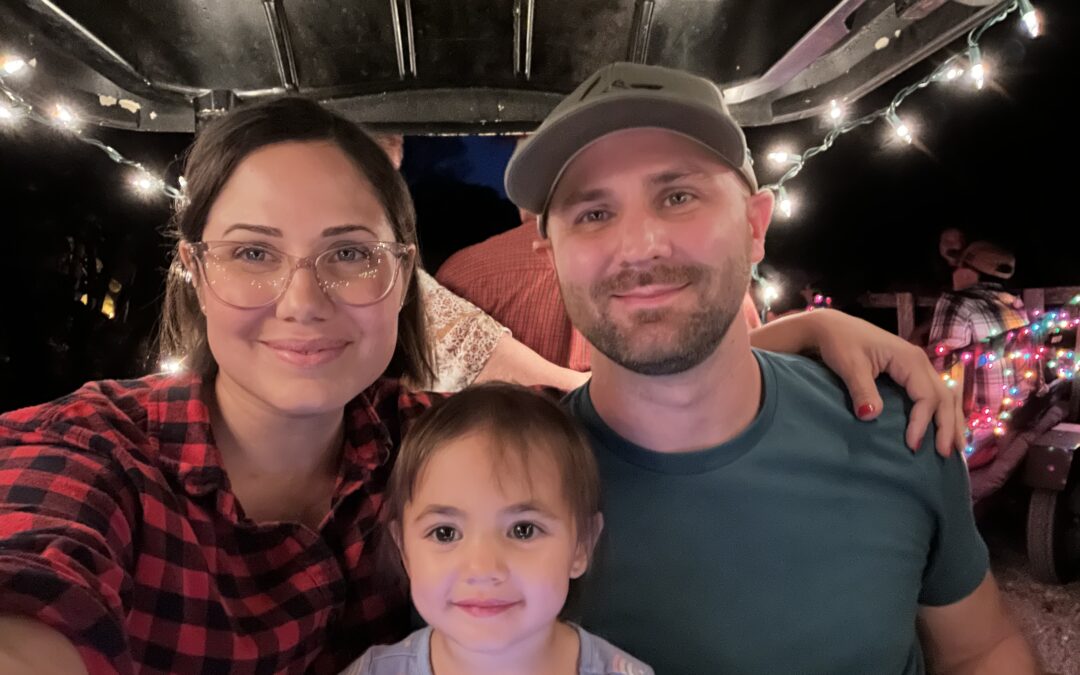She set up the imaging appointment for the next morning, where I was told of malignant suspicions and given a box of tissues along with four biopsies. A day later we got a phone call to confirm what they had warned us to expect, and an oncologist appointment for that same day. At first, the oncologist was easing worries and telling me that we would be able to treat this and move on. We had options, we had time, we had hope. I was frozen and frantic and rich.
I moved onto the examination table and his brows furrowed, eyes darting across my skin. Don’t say it. Between one moment and the next, there was a shift. I then realized that he knew I had cancer from the biopsy results, but the message he received from the breast center hadn’t mentioned the rash. He stepped back stating, “It’s inflammatory.” Suddenly we abandoned the luxury of options and he told me I needed to start chemotherapy as soon as possible. We agreed to move forward, unsure of where we were going. I felt derailed. I couldn’t understand how I was sitting with my midwives planning a homebirth on Wednesday and visiting a cancer center on Friday. I retraced my steps, still missing whatever great leap brought me here. I floated between the words “rare” and “aggressive” that showed up on a government website before I could bring myself to finish that first paragraph about Inflammatory Breast Cancer. When I got through each line, I discovered myself at 29 years old, 20 weeks pregnant with my fourth child and harboring this aggressive type of breast cancer.
I felt derailed. I couldn’t understand how I was sitting with my midwives planning a homebirth on Wednesday and visiting a cancer center on Friday. I retraced my steps, still missing whatever great leap brought me here. I floated between the words “rare” and “aggressive” that showed up on a government website before I could bring myself to finish that first paragraph about Inflammatory Breast Cancer. When I got through each line, I discovered myself at 29 years old, 20 weeks pregnant with my fourth child and harboring this aggressive type of breast cancer.
It felt jarring and surreal for most of the poison/cut/burn part of cancer treatment. By God’s grace I’m here over two years later, grateful, but still reeling from the punches. When I was diagnosed, I didn’t know if I could plan for a future that included two extra years, and yet here I am. I weathered chemo until I was 35 weeks pregnant, and had an induction two weeks afterwards. Surgery was four weeks after giving birth, and twice-a-day radiation began a month after surgery. There was a very specific protocol to follow, and not every doctor I encountered knew how best to treat this cancer, so I studied the MDA protocol that has saved so many lives to make sure I could advocate for a chance at a future.
Advocacy, awareness, and research played pivotal roles in saving my life. My midwives immediately knew that I likely had IBC because they were educated about the “unicorn” cancer at a breastfeeding conference. My primary care doctor rushed me in for testing because she had seen this once before. My oncologist expedited chemotherapy knowing that research proved this was my best chance of surviving and that my 20 week old baby would be safe during treatment.
I often thank them for saving my (and my baby’s) life because I hear so many stories of young women being dismissed, misdiagnosed, and pushed to the back of the line. I wish I had known what to look for with this type of cancer, and I wish I had known that someone so young could be diagnosed. Thankfully, lack of awareness didn’t have to be the end of my story because I was providentially surrounded by a knowledgeable medical care team. I weep for the stories that don’t sound like mine: the stories of women who spent months fighting to be heard, who were given the wrong order of treatment, or the wrong surgery. They often pay the ultimate price for the medical world’s lack of knowledge about this rare and aggressive cancer.
While these two years have been incredibly difficult, I have hope for a future with my family, as fragile as that hope has seemed at times. I believe research will bring us closer to an understanding of why IBC behaves so differently from other breast cancer and why it takes so much from us so quickly. I am so thankful to the IBC Network and the call for awareness by so many of my fellow IBC sisters. You all have had a hand in saving my life by lifting up your voices and I hope by lifting up my own we can bring this devastating disease into the light.



